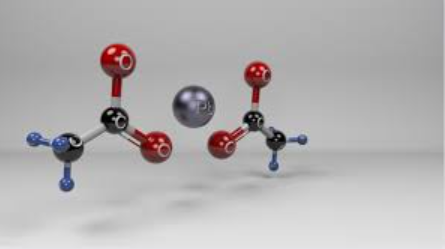Introduction
Acetatas, or acetates, are versatile compounds with a wide range of applications in various industries, including pharmaceuticals, textiles, food production, and industrial processes. These compounds, derived from acetic acid, are crucial in many products and processes that we encounter daily. This article delves into what acetatas are, their common uses, the benefits they offer, and the safety considerations necessary when handling them.
What are Acetatas?
Acetatas, also known as acetates, are chemical compounds that consist of the acetate ion (CH3COO−). They are either salts or esters formed by the reaction of acetic acid with bases or alcohols. Acetic acid, a weak organic acid commonly found in vinegar, reacts with a base like sodium hydroxide to form sodium acetate (CH3COONa), a common type of acetate. When acetic acid reacts with alcohol, it forms acetate esters such as ethyl acetate (CH3COOCH2CH3).
The versatility of acetatas comes from their ability to participate in various chemical reactions, making them valuable in numerous industries. The specific type of acetate used depends on the desired application, whether it’s in pharmaceuticals, textiles, food, or industrial processes.
Common Uses of Acetatas
1. Pharmaceutical Industry
- Sodium Acetate: In the medical field, sodium acetate is primarily used as an electrolyte replenisher. It is administered intravenously to correct low sodium levels in the body. Additionally, sodium acetate acts as a buffering agent in various pharmaceutical preparations, helping to maintain the stability and pH of medications.
- Acetate Esters: Acetate esters like ethyl acetate are commonly used as solvents in the production of pharmaceuticals. They are essential in the extraction and purification of active pharmaceutical ingredients (APIs), ensuring the effectiveness and safety of the final product.
2. Textile Industry
- Cellulose Acetate: One of the most significant applications of acetatas in the textile industry is in the production of cellulose acetate fibers. These fibers are known for their silk-like appearance and are widely used in garments, linings, and home furnishings. Cellulose acetate is valued not only for its aesthetic appeal but also for its comfort and durability, making it a popular choice in fashion and interior design.
3. Food Industry
- Sodium Acetate: In the food industry, sodium acetate is a common food additive used as a preservative and flavoring agent. It helps to extend the shelf life of food products by inhibiting the growth of bacteria and fungi. Sodium acetate is often found in snack foods like potato chips, where it enhances flavor and acts as a seasoning agent.
4. Industrial Applications
- Acetate Esters: Acetate esters such as ethyl acetate and butyl acetate are widely used as solvents in paints, coatings, adhesives, and inks. These esters help dissolve other substances, facilitating the application and drying process of these products. Their effectiveness as solvents makes them indispensable in the manufacturing and construction industries.
5. Cosmetics
- Ethyl Acetate: In the cosmetics industry, ethyl acetate is a common ingredient in nail polish removers. It is highly effective in dissolving nail varnish without causing excessive drying or damage to the nails. Ethyl acetate’s gentle yet efficient properties make it a preferred choice in personal care products.
Benefits of Acetatas
1. Versatility
- Acetates are incredibly versatile compounds, with applications spanning across various industries. Their ability to participate in different chemical reactions and their compatibility with a wide range of substances make them valuable in pharmaceuticals, textiles, food production, and more.
2. Safety in Pharmaceuticals
- Sodium acetate is considered safe for medical use, particularly in electrolyte replenishment and as a buffering agent. Its role in maintaining the stability and pH of medications ensures the safety and effectiveness of pharmaceutical products.
3. Eco-friendly Options
- Some acetates, like cellulose acetate, are biodegradable, making them more environmentally friendly compared to synthetic alternatives. The biodegradability of cellulose acetate contributes to reducing environmental impact, particularly in the textile and packaging industries.
4. Effective Solvents
- Acetate esters are highly effective solvents, making them essential in industries that require the dissolution of various compounds. Their ability to dissolve a wide range of substances makes them ideal for use in paints, coatings, adhesives, and inks.
Safety Considerations
While acetatas are widely used and generally considered safe, there are important safety considerations to keep in mind, particularly in industrial and pharmaceutical settings.
1. Inhalation Risks
- In industrial settings, inhalation of acetate vapors, such as those from ethyl acetate, can cause respiratory irritation, headaches, dizziness, and nausea. Prolonged exposure may lead to more severe health issues. It is crucial to ensure adequate ventilation in workspaces where acetates are used and to employ protective equipment, such as masks and respirators, to minimize exposure.
2. Skin and Eye Irritation
- Direct contact with acetate compounds can cause skin and eye irritation. Acetate esters, in particular, can be harsh on the skin and may lead to dermatitis or other allergic reactions. Personal protective equipment (PPE) such as gloves and goggles should be worn when handling these chemicals to prevent accidental exposure.
3. Environmental Impact
- While some acetates, such as cellulose acetate, are biodegradable, others, particularly synthetic acetates, can have negative environmental impacts if not disposed of properly. Improper disposal of acetate compounds can lead to pollution of water bodies and soil. It is important to follow proper disposal procedures and environmental regulations to minimize harm to the environment.
Conclusion
Acetatas, or acetates, are integral to various industries due to their versatility, effectiveness, and safety when used properly. From pharmaceuticals to textiles, food production, and industrial applications, these compounds play a critical role in many products and processes that we encounter in our daily lives. However, it is essential to handle acetatas with care, considering the potential health and environmental risks associated with their use. By understanding the uses, benefits, and safety considerations of acetatas, industries can make informed decisions about their application, ensuring both efficacy and safety.
FAQs
Q1: What industries commonly use acetatas?
- Acetatas are commonly used in the pharmaceutical, textile, food, industrial, and cosmetic industries. Each industry utilizes different types of acetates based on their specific needs and applications.
Q2: Are acetatas environmentally friendly?
- Some acetatas, such as cellulose acetate, are biodegradable and more environmentally friendly than synthetic alternatives. However, proper disposal is necessary to minimize the environmental impact of non-biodegradable acetates.
Q3: What safety precautions should be taken when handling acetatas?
- When handling acetatas, it is important to use personal protective equipment, ensure proper ventilation, and follow safety guidelines to prevent inhalation, skin, and eye exposure. Proper disposal methods should also be followed to avoid environmental contamination.
Q4: Can acetatas be used in food products?
- Yes, sodium acetate is commonly used in food products as a preservative and flavor enhancer. It is considered safe for consumption when used in accordance with food safety regulations.




